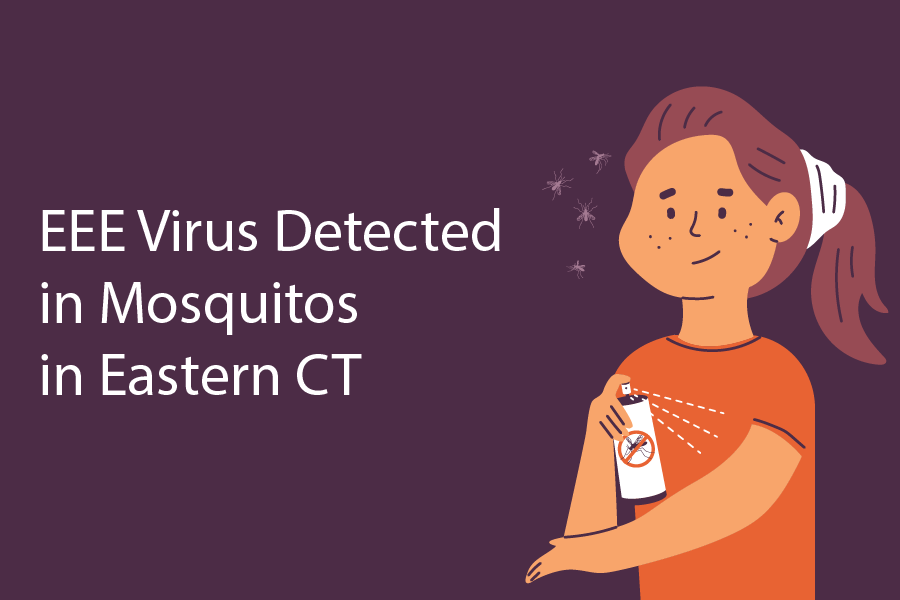Preventative Measures are Key to Protection
The Connecticut Department of Agriculture (CT DoAg) reminds the state’s horse and livestock community to take preventative measures to protect against mosquito-borne diseases this season, including West Nile virus (WNV) and eastern equine encephalitis (EEE). While Connecticut has not had any reported human or horse cases this season, the Connecticut Agricultural Experiment Station (CAES) confirmed detections of WNV-infected mosquitoes in Bridgeport and Stamford beginning in June. Additionally, earlier this week, a goat in Worcester County, Massachusetts, was infected with West Nile virus.
“Recent weather conditions, particularly heat and humidity, are creating an ideal environment for mosquito activity, which increases the need for preventative measures to protect animals and those caring for them,” said Agriculture Commissioner Bryan P. Hurlburt. “Now is the time to review health records and follow veterinary and medical guidance to safeguard the health of horses and people.”
EEE and WNV are both mosquito-borne diseases that affect horses, birds, and humans. Horses are the domestic animals most susceptible to infection from EEE and WNV; however, other animals such as llamas, alpacas, and goats can also be infected. The viruses cannot spread from animal to animal or from animal to human. They are viral diseases transmitted through mosquito bites. The risk for mosquito-borne diseases continues until the first hard freeze ends mosquito activity.
“We can’t stop mosquitoes, but we can mitigate exposure by applying proven control methods, including vaccines, which are highly effective in reducing the severity of symptoms and decreasing the likelihood of death in horses,” said State Veterinarian Dr. Thamus Morgan, DVM, MPH, DACVPM. “More frequent vaccination may be necessary for young or older horses, and sound stable management practices to reduce mosquito breeding sites are advised for all.”
Horse owners are encouraged to implement the following, in coordination with their veterinarian:
- Administer the initial two-dose vaccine series, four to six weeks apart
- Administer regular boosters at least annually
- Consult with your veterinarian if boosters are needed every six months
- Give vaccinations at least one month prior to mosquito season to develop protective immunity
- Remove sources of standing water to eliminate mosquito breeding grounds
- Clean and refill water troughs regularly
- Apply fly sprays containing pyrethrin regularly
If your horse is showing neurologic signs, such as hyperexcitability, tremors, convulsions, paralysis, head tilt, head pressing, incoordination, drowsiness, recumbency, colic, or death, it’s important to call a veterinarian to determine a diagnosis and treatment.
If you suspect your horse may have EEE or WNV, contact your veterinarian immediately. They are both reportable diseases to the State Veterinarian at 860-713-2505. For more information on animals and animal health, visit the state website.
Visit the Connecticut Mosquito Management Program website for information on WNV and EEE, what can be done to prevent mosquito bites, the latest mosquito test results, and human infections.




